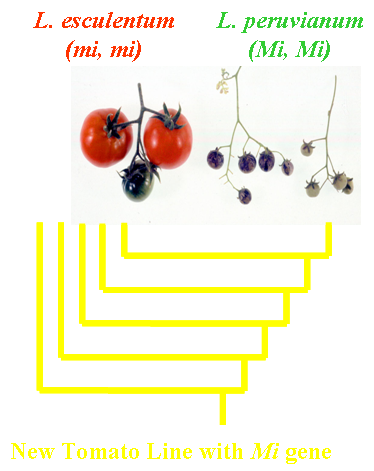| Created with the Web Accessibility Wizard |
Mi gene transfer into tomato is a difficult problem


Long Description: The cultivated tomato L. esculentum makes large red fruits and carries the mi allele for susceptibility to nematode infection. The wild tomato L. peruvianum makes small green fruits and carries the Mi allele for resistance to nematodes. The L. esculentum x L. peruvianum hybrid was backcrossed to L. esculentum for many generations to produce a new tomato line that contains the Mi gene.
The problems:
The test for the Mi gene is done on large
plants after infection of the roots with
nematodes.
Digging up the plant to inspect the roots
interferes with testing the plants for other
traits that the plant must have to be
successful as a commercial cultivar.
Many wild tomato genes linked to the Mi
gene are transferred together with the Mi
gene. Breeders must eliminate these
undesirable genes before a tomato variety
containing the Mi gene can be used for
commercial tomato production.
Slide Links:
| Text Only Version Graphic Version |